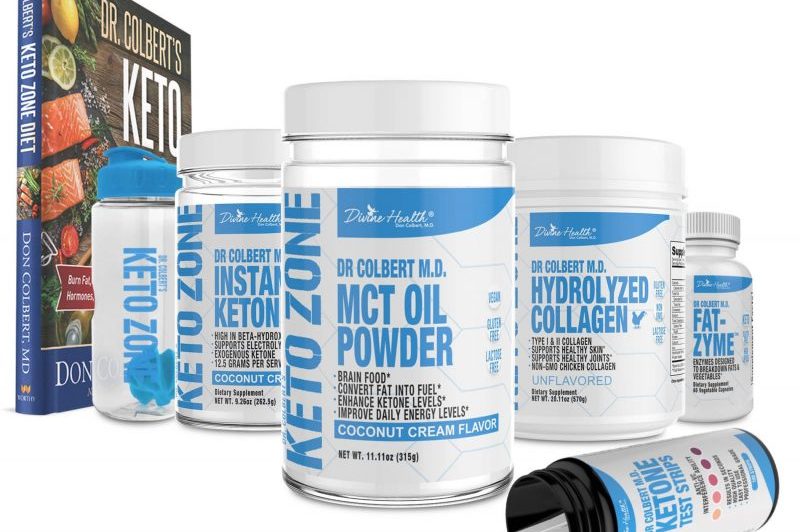Allergy season is here. Are you prepared to fight sinus allergy symptoms? Are you taking care of your sinuses? Do you know how? If not, don’t fret. Today, we have 5 natural ways to fight sinus allergy symptoms with your daily health habits. These tips include bolstering the health and environment of your sinuses themselves, reducing the inflammatory response of your body, and preparing your environment to be less harmful. Not only can you improve symptoms, but hopefully you can stop the inflammatory response before it starts. The best part? These are easy steps you can take, starting today.
How Sinus Allergy Symptoms Occur
How do sinus allergies happen? Sinus allergies and their symptoms occur because a foreign substance, or allergen such as dust or pollen, enters the sinus cavities and inflames them. The body responds by revving up the immune system and releasing a chemical called histamine. Histamine release is often associated with headaches, sneezing, congestion, and mucus product. The mucus can block the sinuses while surrounding vessels become more dilated and inflammation. If these problems continue to fester, the risk of sinus infections increases.
This is no way to spend your spring and summer! But, sinus allergies are very common. According to the CDC, more than 50 million Americans now suffer from allergies and sinus issues each year (1). If you’re one of these 50 million, here are 5 things you can do.
5 Natural Ways to Fight Sinus Allergies
1. Improve Sinus Health with Specific Nutrients
To start, add nutrients that specifically support sinus health. These supplements include vitamins, amino acids, anti-inflammatory compounds and more. Incredibly, you can find all of these specific nutrients in Dr. Colbert’s Healthy Sinus Formula, which delivers an all-in-one supplement for sinus health. It’s vital to consistently get these nutrients into your system, ahead of allergy season – so start now!
2. Eat a Diet that Fights Inflammation & Allergy Symptoms
Follow a Beyond Keto Lifestyle to Nourish Your Body with Anti-Inflammatory Fats
Whole-body inflammation and health influences your sinus health. In fact, your diet directly affects inflammatory vs. anti-inflammatory reactions in the body.
To increase anti-inflammatory actions, which support sinus health, eat anti-inflammatory foods in the Beyond Keto diet.
These include:
- Fatty fish and seafoods
- Colorful vegetables
- Ginger and Turmeric
- Seeds like chia seeds, flaxseeds, and hemp heart seeds
- Krill Oil Supplements such as Divine Health Living Krill Oil
On the other hand, it’s crucial to avoid highly inflammatory processed foods. Avoid foods and drinks high in sugar, refined grains, and cheap oils such as soybean oil.
Studies have shown that those with seasonal allergic reactions and asthmatic allergies actually have higher underlying inflammation even when they are not showing symptoms (2). Therefore, many experts believe reducing overall inflammation may improve asthmatic and allergic conditions.
You can find a full plan in Dr. Colbert’s Beyond Keto Zone® Book.
Add Probiotics Each Day
Probiotics and Fermented Foods can also reduce whole-body inflammation to support sinus health. How?
Amazingly, the health of your digestive system affects sinus health.
In fact, one study of 173 people who suffer from seasonal allergies found that taking a daily probiotic with lactobacillus strains significantly improved their “quality of life” scores from baseline to peak pollen compared to a placebo group (3).
It is hypothesized that probiotics can improve the quality of life of seasonal allergy sufferers by increasing the percentage of regulatory T cells (Tregs) and improving allergen tolerance.
3. Add a Daily Dose of Raw Cider Vinegar
There are 2 ways raw apple cider vinegar can support sinus health:
- In lab tests, scientists have found that the bacteria in raw vinegar can actually improve immune factors and protect from an allergic reaction (4).
- Apple cider vinegar is a natural decongestant, and it causes your sinuses to drain when you drink it. While the relief is temporary, it is effective and reduces the risk of clogged sinuses becoming infected.
What’s more, unlike medication decongestants, you are not at risk of rebound congestion, which can occur with long-term use of decongestants and results in worsening symptoms.
How should you take it? ALWAYS dilute apple cider vinegar. Taken straight, it can damage your esophagus. Instead, mix 1 Tbsp. apple cider vinegar, 4 oz. water, 1/2 tsp ginger, ½ tsp cinnamon, and stevia to taste. Take 2-3 times per day during allergy season.
4. Keep Your Sinuses Clean with All-Natural Sinus Sprays
At most stores and pharmacies, you can find nasal sprays with simple ingredients like baking soda, salt, xylitol, and purified water.
These sprays flush out your nasal passages. When used a few times per day they can ease allergy symptoms, especially if you begin using it proactively before strong symptoms begin.
5. Reduce the Pollen in Your House
Leave Shoes Outside or Tucked Away
Shoes have a way of trapping pollen on them and then depositing it all over your floor surfaces if worn inside.
Instead, remove them at the door and leave them out.
Close Windows & Doors During High Pollen
Especially if you live in an area with high pollen counts, keep windows and doors closed.
Pollen blows around most in the Spring, and typically in the early hours of the day. Keep windows and doors closed to avoid pollen blowing inside.
Instead, use an air conditioner or cooler if it is too warm. Make sure to change the old filters as they will most likely be full of dust, pollen, and mold.
Installing an air purifier with a HEPA filter will also help to remove allergens from the interiors.
Keep Your Floors, Fans, Filters, & Counters as Clean as Possible
Dust mites also cause many allergy symptoms.
Dusting regularly, vacuuming and using a HEPA filter, and washing floors and surfaces regularly can help reduce seasonal allergies and symptoms.
Take a Shower & Change Clothes after Being Outdoors
Clothes and hair are pollen magnets, so take them off and rinse as soon as possible!
Instead of dragging the pollen inside and sitting it in, shower and change.
Get Rid of Pollen Before Climbing into Bed
Consider showering before bed, changing pillowcases daily, and sheets regularly. If you go to bed with pollen in your hair, it can stay on your pillowcase for days. Then, you’re essentially sleeping in pollen!
Keep these soft surfaces as clear of pollen as possible to get a good night sleep and wake up feeling better rather than worse.
Bottom Line
Bring on Spring! This year, you can fight allergy symptoms with Dr. Colbert’s Healthy Sinus Formula and more. Get started today and enjoy the warm weather to come.
















